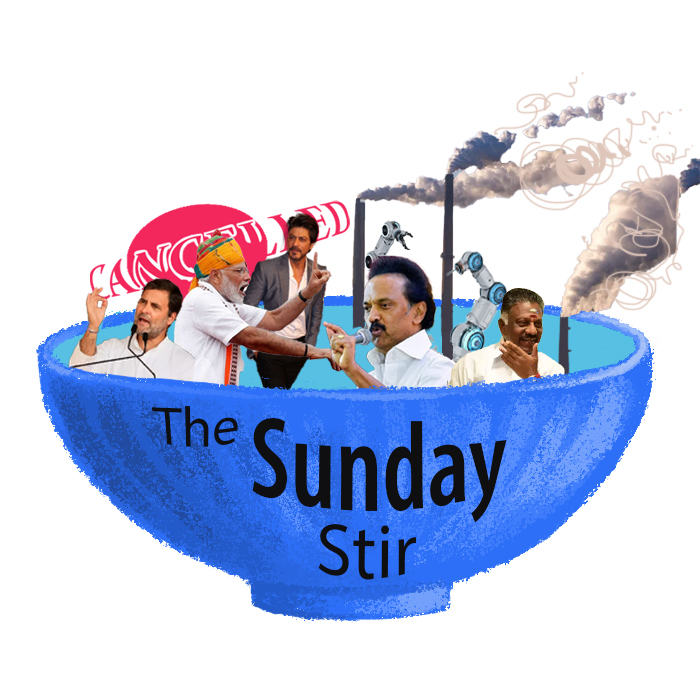For the past 24 hours, social media platforms have been flooded with reactions, comments, and a diverse range of opinion about the arrest of Youtuber and head of Savukku Media, ‘Savukku’ Shankar.

According to the Coimbatore Police, Shankar, who was arrested Shankar in Theni, has been booked for making defamatory statements against women police personnel in an interview given to a Youtube channel that bordered on a general character assassination of all women in khakhi . To add to the drama, the vehicle in which he was brought from Theni to Coimbatore met with an accident after a lorry brushed past the police vehicle, which is also being called a ‘police plot’.
Shankar’s arrest and the overwhelming support he has been receiving in social media from general public highlights our lack of respect for others’ lives and our ignorance of the defamation laws in our country yet agin.
As any active journalist in TN would know, most of the ‘revelations’ made by Shankar in his Youtube interviews and statements made on other platforms are quite often the topic of private discussions/gossip among scribes as we, media professionals, are entitled to a ringside view of various developments, which general public are not privy to. But they are just that — gossip material!
One of the reasons for the huge popularity of ‘Savukku’ Shankar is that he brought all those private gossips/discussions to the public forum without providing any proof to his claims and has been consumed vociferously by a sensation-hungry social media audience.
However, in doing so, Shankar has clearly violated the laws of the land and has also tarnished the reputation of media profession in general for the only reason other journalists restricted such topics to private discussions was that there is nothing to prove any of the sweeping allegations commonly made against the government and its bureaucrats.
By making statements in a public forum without providing any proof, Shankar has actually violated one of the fundamental rights of his victims — the right to live with dignity — and by no means can that be allowed to pass off as the correct thing to do.
By making statements in a public forum without providing any proof, Shankar has actually violated one of the fundamental rights of his victims — the right to live with dignity — and by no means can that be allowed to pass off as the correct thing to do.
So, what is a defamation?
To surmise briefly, any false statement published or spoken deliberately in public with the intention to damage someone’s reputation constitutes defamation.
It is further categorised into liber and oral or slander. While Libel is an untrue defamatory statement that is made in writing, slander is an untrue defamatory statement that is spoken orally. According to Indian Constitution, both libel and slander are considered to be criminal offences and such statements made in public constitute defamation. Attacking a person’s reputation on the internet or social media is termed as cyber defamation.
Can anything one speaks become legally defamatory?
Freedom of Speech is one of the fundamental rights of every citizen. Article 19(a) of the Indian Constitution guarantees that every citizen shall have the right to freedom of speech and expression. However, this isn’t absolute as Article 19(2) clarifies that one cannot use freedom of speech to comment against the sovereignty and integrity of India, to disrupt public order, or make indecent, immoral and defamatory statements or to incite an offence.
Article 21 of Indian Constitution guarantees the fundamental right to protection of life and personal liberty. The Article asserts that every person has the right to life and the right to live with dignity, and in a healthy environment among others. And, by making false statements against an individual, the accused denies his or her victim the right to live with dignity, making it an offence under Indian laws.
Under the Indian Penal Code, defamation is defined under Section 499 as any spoken, written, or visual statement about any person damaging their reputation. Section 499 even goes further and protects the rights of even a deceased person if the statement must hurt the feelings of the family or close relatives, and it must damage the reputation of the deceased individual if the person were still alive.
According to Section 500 of the IPC, any person who defames another person is subject to punishment, which shall include fine, or imprisonment which shall not exceed more than two years or both.
Just a few months ago, the 22nd Law Commission of India had recommended that criminal defation be retained within the scheme of criminal laws in the country in its report no. 285 titled ‘The Law of Criminal Defamation’. After careful consideration, the Law Commission had recommended that criminal defamation be retained and went on to add that it is important ‘to consider that right to reputation flows from Article 21 of the Constitution of India, and being a facet of right to life and personal liberty, needs to be adequately protected against defamatory speech and imputations.’
With our defamation laws so well defined, it is unlikely that Shankar can get away with all the statements he has made in the past without producing an iota of proof. However, in a functional democracy, voices of dissent – such as Savukku Shankar – are also important and cannot be crushed totally either.
When his legal battles are done with, Shankar would do good to himself by introspecting and channelling his energy constructively. Even if he were to provide material proof for 10 per cent of the allegations he has levelled against corrupt officials, Savukku Shankar would be doing a great service to this country and his admirers besides carving a permanent name for himself in Indian media.
To remain relevant and be respected in media circles, Shankar should fight the cases against him and in future refrain from making any allegations without providing verifiable proofs. The time and money he will have to spend to fight defamation cases could be used to gather solid proof to substantiate his claims.
When his legal battles are done with, Shankar would himself a world of good by introspecting and channelling his energy constructively. Even if he were to provide material proof for 10 per cent of the allegations he has levelled against corrupt officials, Savukku Shankar would be doing a great service to this country and his admirers besides carving a permanent name for himself in Indian media.


